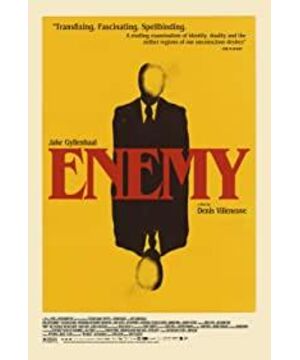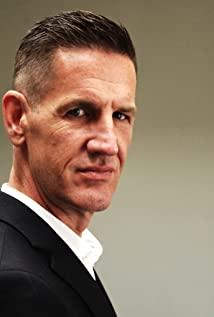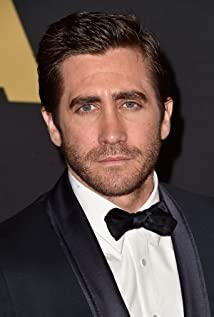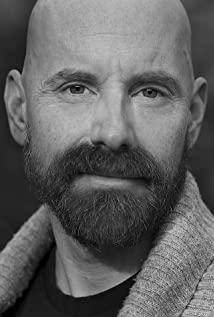Synopsis] A university professor found that a third-rate actor was exactly like a clone of himself, and huge waves began to appear in his boring life.
[Driver] Curiosity is another basic desire after people eat, drink, sleep, and have sex. It drives people to complete many things forward, such as research and development, making money, and completing work... Just like for human beings to complete reproduction, God installed Libido is the same component. Curiosity is a high-end product that is unique to human beings, and it is also the original kinetic energy of human inner activities.
This film is to use curiosity as the driving force to start attracting the audience. When a strange event is found that is closely related to oneself, people's curiosity will increase sharply, and even inexplicable panic will occur.
【structure】
Adam found the same as me, surprised
Adam actively seeks (curiosity-driven) - when going deep, backs away from cowardice.
Anthony proactively seeks (curiosity-driven) - in-depth understanding, lust becomes motivation.
Anthony in a car accident;
Adam found something strange. Anthony is Adam, Adam's past
This film is an example of the first-class standard of modern Hollywood - not only the first-class standard of blockbusters and big scenes,
From the lines, performances to the editing of the soundtrack, it is extremely mature, complex and methodical. Only careful analysis and disassembly will reveal it.
In addition, it is a little proof that it is "advanced goods": "The Enemy" is essentially a psychological film, but it is completely the shell of a suspenseful story. This is very beautiful! In contrast, various "memory" and various "psychological" stories are much more advanced, less preaching and more ghosts.
【Story logic】
However, the fans at the end of the film do not have a closed loop, which will make the audience a little uncomfortable or puzzling. The audience is at a loss as to which one is the truth and are they related? I only got the idea the second time I saw it. The answer will be found if you follow the author's assumptions.
Suppose,
This is a film about the male protagonist with severe schizophrenia.
Then it tells the story of a man who is schizophrenic, which means that except for Adam, everyone else is relatively normal.
Then all the male protagonists say is unbelievable. We use other people's testimonies to piece together the truth, and we'll see what's going on!
Colleagues - confirmed the existence of Adam as a history lecturer.
Doorman - confirmed the fact that he was an actor under his stage name.
Mom - confirmed that he is a college teacher - "You have a good job", and once was a group performer "Don't think about the dream of a third-rate actor"
Wife - confirms his schizophrenia, delusional dual identity - "You know, you must know"
To sum up: Adam is the original name. He used to want to make a star and love movies. He was extremely frustrated and had a schizophrenia after a car accident. He chose to forget the part of escaping from the failure, and his memory was wiped clean. There is a case for this in psychology. The audience told it from Adam's point of view, but after he discovered his "old self", it was as if he had found another person.
A classic psychological principle completes this story - people's subconscious is the most honest, no matter how people escape or suffer setbacks, they will not change.
Adam, who suffered from the failure of his "actor dream", discussed the movie with his colleague, but Adam refused directly: he was not interested in the movie. Ironically, he cared about "what movie" his colleagues were discussing. People are deceiving themselves and others on the surface, but the inner reaction is real.
Psychological medicine has existed for a hundred years since Freud's breakthrough, so how was it used by screenwriters and turned into a story that was established in front of the audience? In other words, how does the author ensure that the audience perceives it effectively? The study of the human being itself is the most complicated thing, especially the psychological principles.
【Key method】
1. Treating schizophrenics as normal people, and the audience narrates from his perspective, the world is chaotic and full of doubts.
2. In dealing with events, one person is split into two people, two system events, but the details are not demarcated, so that the audience can distinguish themselves. In other words, the theme structure is rigorous, and some important details are expressed as "points", so that the audience will make up their own minds and become "lines".
【other】
1. Each scene has its own important tasks, and the characters will "get things done" in one scene.
What is the mission ?
2. Reversal point
The reversal from inferiority, passiveness to ending becomes active, complete logic . Conversation of Conversation + Expression + Body Movement Coordination
3. Between big transitions, use panoramic views, cut from God's perspective, aerial photography of the protagonist's apartment, suspenseful atmosphere and music expression...
【Important third act】
A good suspense film is not afraid of being addicted at the beginning, and its brilliance is often in the third act.
In the first ten minutes, the character is a dull guy, a loner, walking with a bowed head and infinitely large eyelids. Suddenly, an incredible event happened.
Before a series of formal openings and de-rings, a mysterious and discordant atmosphere was set up for 10 minutes.
In conclusion, as long as the overall layout and the third act are exciting enough, the front is not boring.
The urban vista has always been shrouded in a suffocating smog, and there are even fantasy spider monsters in the middle.
The director's storytelling is clean and neat. Although the story progress is not obvious in the first 10 minutes, why is it not boring?
answer two
1 Always ambush discordant voices, remind the audience to pay attention, and think about why?
2 One action and one shot, not wordy, and the external rhythm is not slow.
"The Enemy", "The Prisoner" and "The Elephant" are all examples of the energy behind the silence at the beginning.
View more about Enemy reviews











